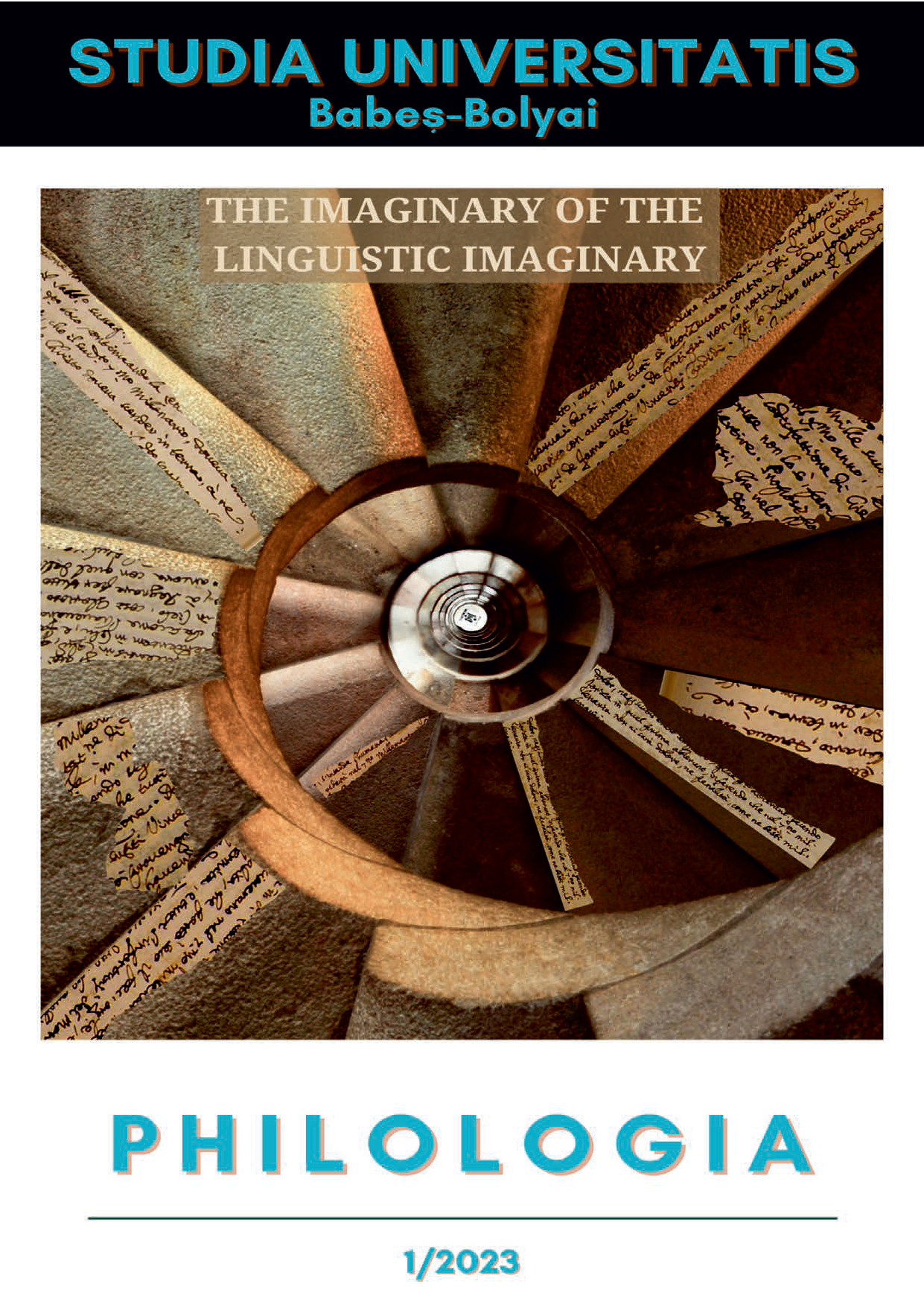THE METAPHORS OF ‟GOD” IN ORTHODOX PRAYERS
DOI:
https://doi.org/10.24193/subbphilo.2023.1.01Keywords:
God, Cognitivism, conceptual metaphor, linguistic imaginary, Orthodox prayersAbstract
The Metaphors of God in Orthodox Prayers. In this paper we look at the conceptual metaphors of God that we encountered in a collection of Orthodox prayers. Prayers are a type of discourse genre belonging to liturgical sublanguage, which is described as conservatory and intangible. We aim at identifying the way in which religious imaginary is configured as part of the linguistic heritage. We do not only intend to analyse the mechanisms of the conceptualization of God in the discourse of devotions, but also to connect it to religious teachings and dogmas, to have a better understanding of the outlined imaginary. The concept of God is deeply rooted in prayers and is lexicalized into coherent and logical structures, interwoven into a pluralist perspective on divinity.
Metaforele referitoare la Dumnezeu în rugăciunile ortodoxe. În prezenta lucrare ne propunem să identificăm metaforele conceptuale referitoare la Dumnezeu într-un corpus de rugăciuni ortodoxe. Rugăciunea este un tip de discurs aparținând sublimbajului liturgic, descris ca intangibil și conservator. În cele ce urmează, vom urmări modalitatea în care se configurează imaginarul religios ca parte a patrimoniului lingvistic. Nu intenționăm doar să analizăm mecanismele prin care Dumnezeu este conceptualizat în discursul rugăciunii, ci și să relaționăm aceste reprezentări cu învățăturile religioase și dogmatice, pentru a înțelege mai bine modul în care este configurat imaginarul verbalizat. Conceptul de Dumnezeu este puternic înrădăcinat în limbajul rugăciunii, fiind organizat în structuri coerente și logice care oferă o perspectivă pluralistă asupra divinității.
Cuvinte-cheie: Dumnezeu, cognitivism, metaforă conceptuală, imaginar lingvistic, rugăciuni ortodoxe
Article history: Received 22 September 2022; Revised 6 December 2022; Accepted 1 February 2023; Available online 27 March 2023; Available print 31 March 2023.
References
SOURCES
C = 1973. Ceaslov, ediția a doua. București: Editura Institutului Biblic și de Misiune Ortodoxă.
CR = 2003. Carte de rugăciuni. Alba Iulia: Reîntregirea.
L = Arhiepiscopia Ortodoxă Română a Vadului, Feleacului și Clujului. 2009. Liturghia Sfântului Ioan, ediția a V-a, Cluj-Napoca: Renașterea.
WORKS CITED
Bistrițeanul, Benedict. 2021. Brațele părintești. Cluj-Napoca: Renașterea.
DesCamp, Mary Therese, and Sweetser, Eve E. 2005. “Metaphors for God: Why and How Do Our Choices Matter for Humans? The Application of Contemporary Cognitive Linguistics Research to the Debate on God and Metaphor.” Pastoral Psychol 53: 207–238.
Erussard, Laurence. 1997. “From Salt to Salt: Cognitive Metaphor and Religious Language.” Cuadernos de Filología Inglesa, 6/2: 197‒212.
Faucconier, Gilles, and Turner, Mark. 2002. The Way we Think: Conceptual Blending and the Mind`S Hidden Complexities. New York: Basic Books.
Gerhart, Mary, and Russell Allan. 1984. Metaphoric Process: the Creation of Scientific and Religious Understanding. Fort Worth: Texas Christian University Press.
Kuczok, Marcin. 2014. The Conceptualization of the Christian Life in John Henry Newman`s Parochial and Plain Sermons. Newcastle upon Tyne: Cambridge Scholars Publishing.
Lakoff, George. 1993. “The Contemporary Theory of Metaphor”, in Metaphor and thought, 202‒251, edited by Ortony Andrew, 2nd edition. Cambridge: Cambridge University Press.
Lakoff, George, and Johnson, Mark. 1999. Philosophy in the Flesh. The Embodied Mind and Its Challenge to Western Thought. New York: Basic Books.
Lakoff, George, and Johnson, Mark. 2003 (First published in 1980). Metaphors we Live by, Chicago: The University of Chicago Press.
Noica, Rafail. 2002. Cultura duhului. Alba Iulia: Reîntregirea.
Platon, Elena. 2020. „Patrimoniu și imaginar lingvistic”, in Enciclopedia imaginariilor din România. II. Patrimoniu și imaginar lingvistic, 11‒28, edited by Corin Braga and Elena Platon. Iași: Polirom.
Pușcaș, Andreea-Nora. 2020. „Limbajul religios”, in Enciclopedia imaginariilor din România. II. Patrimoniu și imaginar lingvistic, 109‒127, edited by Corin Braga and Elena Platon. Iași: Polirom.
Rosenberg, Alape Vergara. 2016. “Cuerpo, metáforas conceptuales y religión.” Ideas y Valores 65, Sup. No. 2: 63‒78.
Saint Athanasius Academy of Orthodox Theology. 2008. The Orthodox Study Bible. California: Elk Grove.
Schmemann, Alexandre. 1993. Euharistia. Taina Împărăției, 1993, translated by Boris Răduleanu. București: Anastasia.
Slingerland, Edward. 2004. “Conceptual Metaphor Theory as Methodology for Comparative Religion.” Journal of the American Academy of Religion, vol. 72, no. 1: 1–31.
Verde, Danilo. 2016. “Metaphor as Knowledge. A Hermeneutical Framework for Biblical Exegesis with a Sample Reading from the Song of Songs (Song 8:10).” The Biblical Annals, 6 (2016): 45‒72.
Witzig, Peter G. 2013. Metaphors we Worship by: An Examination of Conceptual Metaphor and Religion Through the Lens of Christianity. Atlanta: Emory University: 1‒9.
Downloads
Published
How to Cite
Issue
Section
License
Copyright (c) 2023 Studia Universitatis Babeș-Bolyai Philologia

This work is licensed under a Creative Commons Attribution-NonCommercial-NoDerivatives 4.0 International License.





 ©Studia Universitatis Babeş-Bolyai Philologia. Published by Babeș-Bolyai University.
©Studia Universitatis Babeş-Bolyai Philologia. Published by Babeș-Bolyai University.